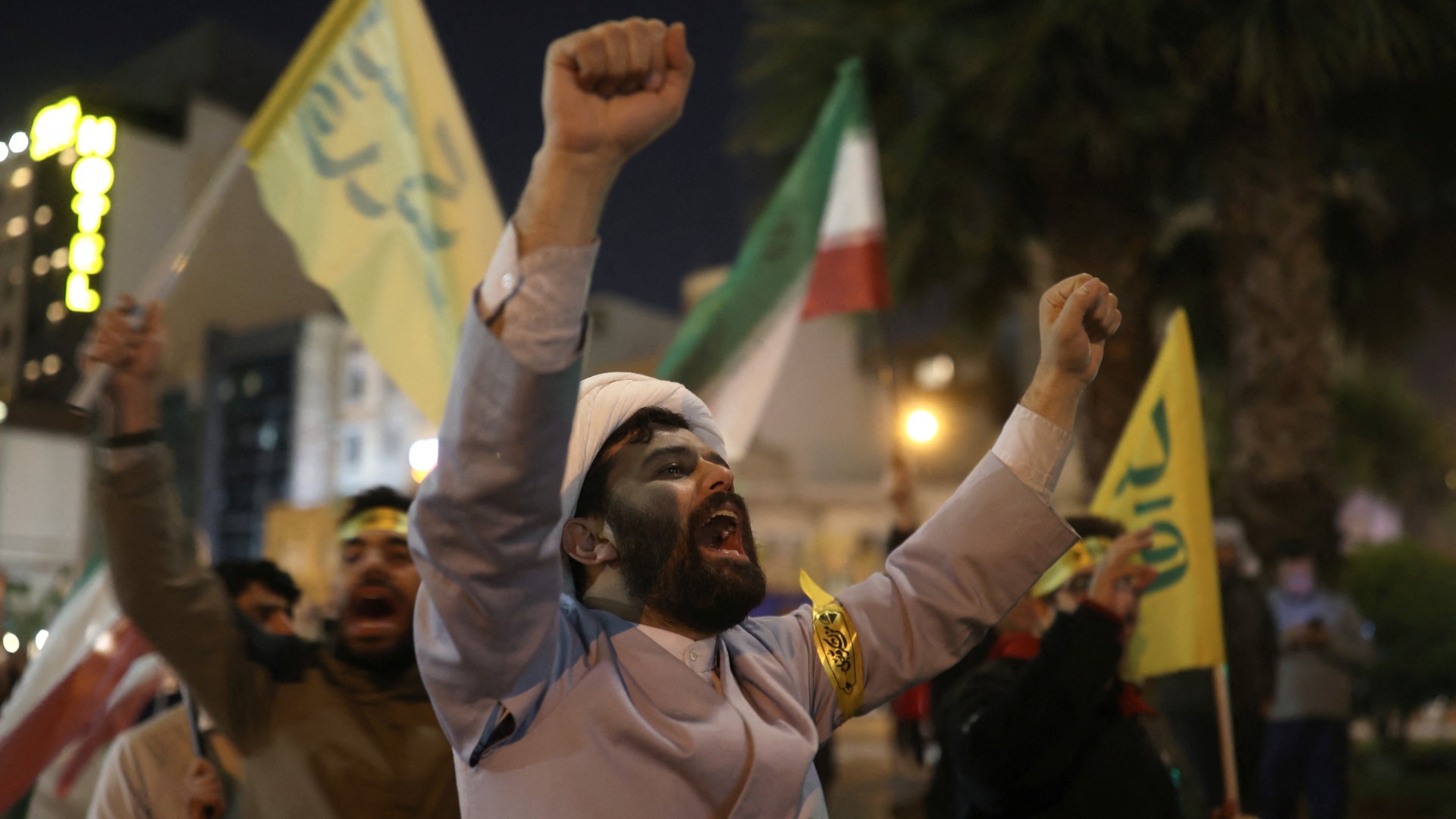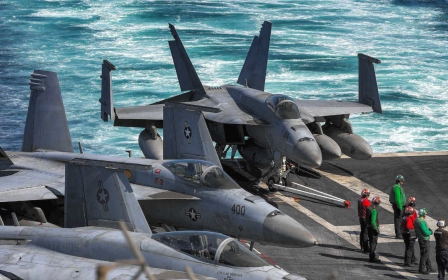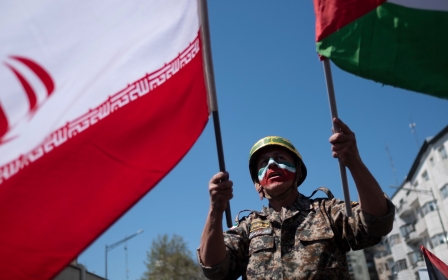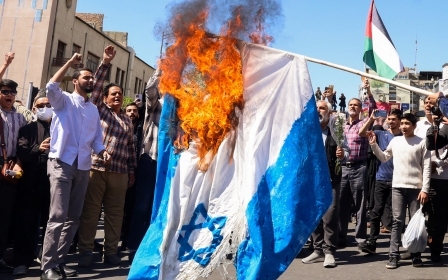Iran launches attack drones and missiles at Israel
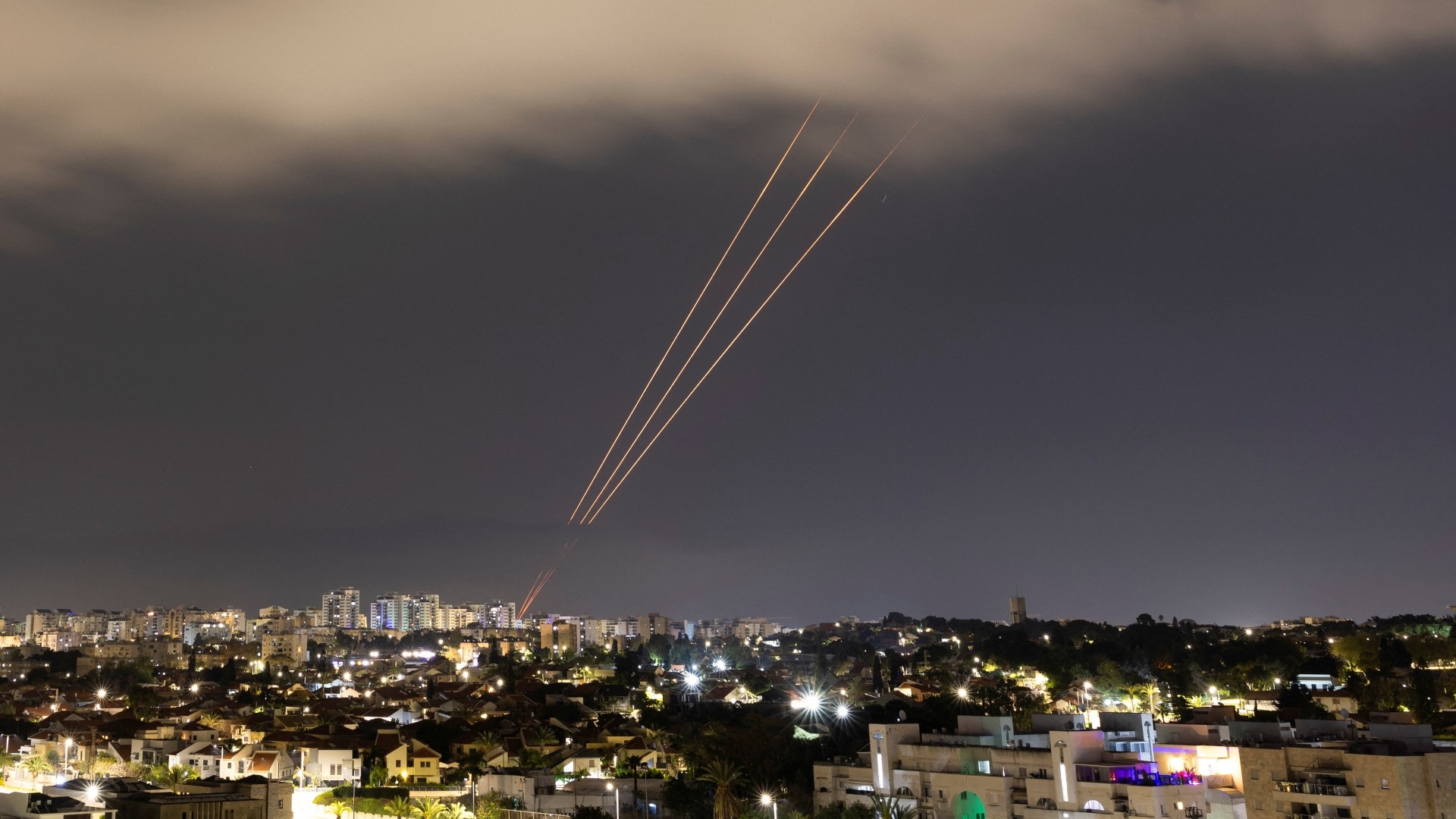
Iran launched swarms of drones and dozens of missiles towards Israel on Saturday night in retaliation for the killing of senior Iranian commanders in an attack earlier this month on its consulate building in Damascus.
Sirens blared across Israel as the drones reached Israeli territory. Footage aired by Al Jazeera showed air defence interceptions and booms ringing out in the skies above Tel Aviv and Jerusalem.
Hundreds of drones and dozens of cruise and ballistic missiles were launched at Israel in waves in an operation Iran dubbed "True Promise".
"The malicious Zionist regime will be punished", Iranian Supreme Leader Ali Khamenei said.
Israel's army initially said that a child had been killed and a military base in the south of the country slightly damaged. The young girl was later reported to have survived but remained in a life-threatening condition after her home was hit by shrapnel from an intercepted ballistic missile.
Stay informed with MEE's newsletters
Sign up to get the latest alerts, insights and analysis, starting with Turkey Unpacked
In a statement on Sunday, Iran's foreign ministry said the attacks had been carried out in accordance with the right to self-defence established by the United Nations charter and in response to the attack on the country's consulate in the Syrian capital.
It said: "The Islamic Republic of Iran's resort to defensive measures in exercise of its right of self-defence demonstrates Iran's responsible approach toward regional and international peace and security at a time when the occupying apartheid regime's pattern of relentless genocidal campaign against Palestinian people is accompanied with repeated military aggressions against neighboring States and fanning the flames across the region and beyond."
Iran's Islamic Revolutionary Guards Cotps warned the United States that it would face a "decisive and regretful response" for any support for Israel which harmed Iran's interests.
"While emphasising the policy of good neighbourliness with neighbouring and regional countries, it is stated that any threat originating from any country... will receive a reciprocal and proportional response from the Islamic Republic of Iran against the origin of the threat," it said in a statement reported by the IRNA news agency.
The UN Security Council is expected to meet on Sunday following a request from Israel.
Saturday's attack is the first time Iran has ever struck at Israel directly and continued over several hours.
Shahed "suicide" drones and missiles were seen flying over Iraq, and sources in Amman, Beirut and Damascus reported hearing explosions overhead. US, UK and Jordanian fighter jets reportedly intercepted several drones and missiles between Iran and Israel.
Jordan's cabinet confirmed in a statement on Sunday that the country's air defences had intercepted some flying objects which entered its airspace on Saturday night.
"Some shrapnel fell in multiple places during that time without causing any significant damage or any injuries to citizens," it said.
Lebanon and Iraq closed their airspaces, and Israel shut down operations at its airport. To the north, Lebanon's Iran-backed Hezbollah movement said it had also fired rockets at the Israeli-occupied Golan Heights, and Al Jazeera reported Israeli strikes in southeast Lebanon.
Israel told its citizens in Eilat, Dimona, Nevatim and the Golan to remain close to bomb shelters.
On 1 April, an air strike hit the Iranian consulate in Damascus, killing a general and six other senior commanders. Iran accused Israel, with Khamenei promising revenge in an Eid al-Fitr address to the nation.
Since the Gaza war broke out in early October, Iranian allies across the region - such as Lebanon's Hezbollah, the Yemeni Houthi movement and Iraqi paramilitaries - have staged attacks on Israel in solidarity with the Gaza Strip.
Hamas, which led the Palestinian attack on Israeli communities near Gaza on 7 October, is also allied with Tehran.
In a statement on Sunday, Hamas said it regarded Iran's attack on Israel as "a natural right and a deserved response" in retaliation for the attack on its Damascus consulate.
Though Israel's war on Gaza has spread to clashes along the Lebanese border with Hezbollah and rocket and drone attacks from Yemen, Iraq and Syria, there were fears that the strike on the Damascus consulate would escalate the conflict further on a regional scale.
Israel has promised to respond to any Iranian attack. US officials told Middle East Eye that Gulf Arab states informed Washington it would be unable to use their territory to strike Iran alongside Israel.
Iran's defence minister warned Tehran will respond to any country that "opens its airspace or territory for attacks on Iran by Israel", according to the Mehr news agency.
Following a meeting with his security advisors, US President Joe Biden said on X: "Our commitment to Israel’s security against threats from Iran and its proxies is ironclad."
Iran's attack was also condemned by the leaders of many European countries including the UK, Germany and France.
British Prime Minister Rishi Sunak described the Iranian attack as "reckless", while European Union foreign policy chief Josep Borrell said: "This is an unprecedented escalation and a grave threat to regional security."
UN Secretary-General Antonio Guterres "strongly" condemned the attack, saying he is "deeply alarmed about the very real danger of a devastating region-wide escalation".
Iran's Chief of Staff Major General Mohammad Baqeri said on Sunday that Iran had no more plans to attack Israel and considered its response to the attack on its Damascus consulate to have concluded, according to the IRNA news agency.
But Iran's foreign ministry said the country "would not hesitate to take further necessary defensive measures to protect its legitimate interests against any act of military aggression or unlawful use of force".
Middle East Eye delivers independent and unrivalled coverage and analysis of the Middle East, North Africa and beyond. To learn more about republishing this content and the associated fees, please fill out this form. More about MEE can be found here.


